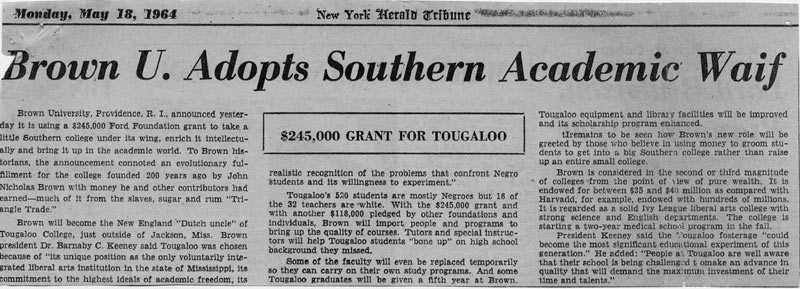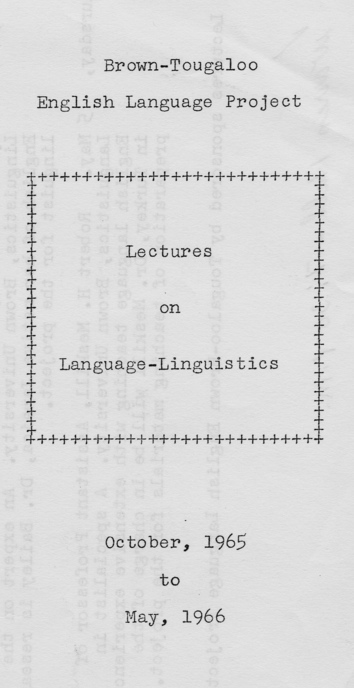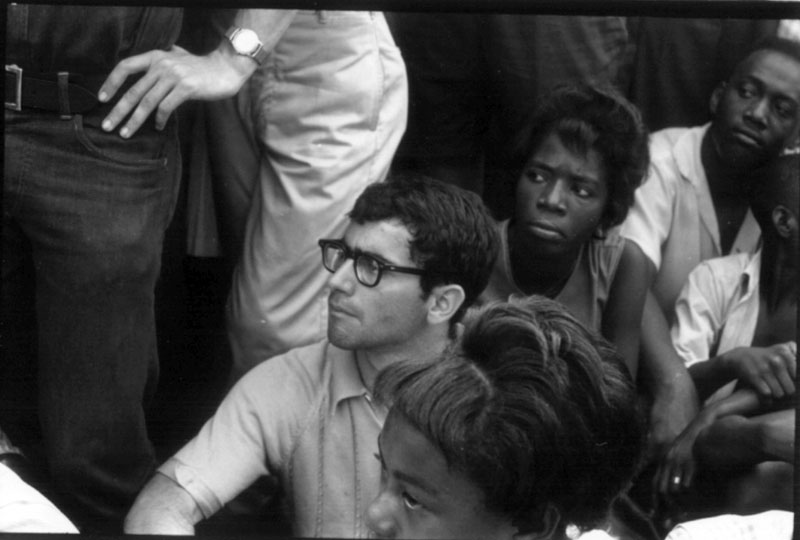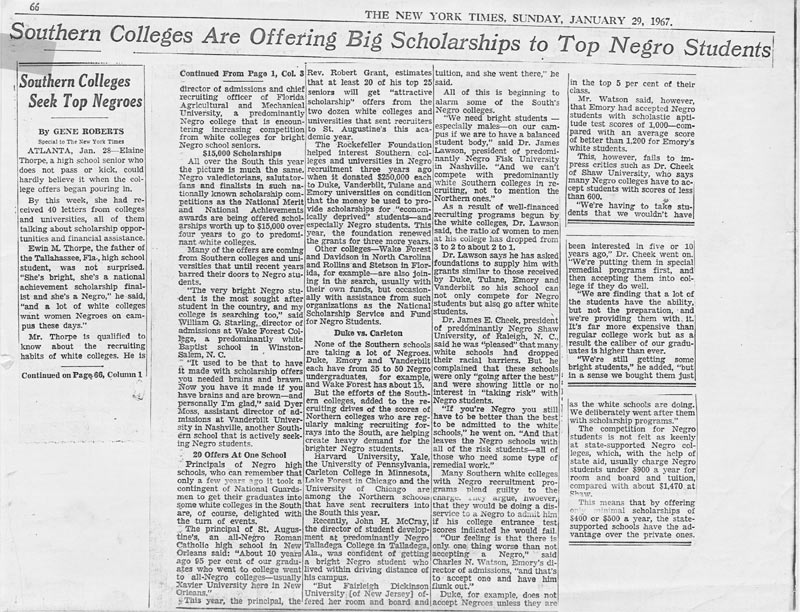
Begun in 1964, the history of the Brown-Tougaloo Cooperative Exchange mirrors the story of race relations in the United States. Both historically black colleges and white elite universities faced changes as a result of the Civil Rights Movement. One of the first of many exchange programs between Northern and Southern schools, the relationship between Brown and Tougaloo continued long after most of the others were abandoned.
For an overview of the exchange, please see:
The Brown-Tougaloo Cooperative
Exchange, James Campbell, Associate
Professor, Africana Studies, American Civilization, and History
We collected documents from the Brown University Archives that put the exchange into historical context. Brown students wrote essays about some of the documents and placed many more in a searchable database.
You can find a selection of the documents in the document clusters to the right or simply explore the database. These documents and essays should interest people on both campuses as well as anyone concerned with the lasting legacy of the Freedom Movement and the continuing responsibilities that legacy confers.
Mississippi Freedom Movement

 Who Fired Dan Beittel? Reconstructing the Prehistory of the
Brown-Tougaloo Cooperative Exchange by Will Tucker, Brown '04
Who Fired Dan Beittel? Reconstructing the Prehistory of the
Brown-Tougaloo Cooperative Exchange by Will Tucker, Brown '04
In May of 1964, on the tenth anniversary of Brown v. the Board of Education, the New York Herald-Tribune ran a story celebrating the beginning of the new Ford Foundation-funded cooperative relationship between Brown University in Providence, Rhode Island, and Tougaloo College outside of Jackson, Mississippi, headlined, "Brown U. Adopts Southern Academic Waif." [more...]
 The Brown-Tougaloo Language Project: A Controversial Experiment by Niketa Williams, Brown '05
The Brown-Tougaloo Language Project: A Controversial Experiment by Niketa Williams, Brown '05
The establishment of the Brown-Tougaloo Cooperative Exchange brought about a number of projects designed to promote the academic and economic growth of Tougaloo College. One of the most controversial was the Brown-Tougaloo Language Project (BTLP). In December 1964, Brown University submitted a $200,000 grant proposal to the Rockefeller Foundation outlining a program to teach "standard" or "formal" English dialect to recent high school graduates participating in the Pre-Freshman Summer Program at Tougaloo. The Language Project originated from a concern that the dialect of students educated in historically Black universities across the rural South marked them as socially inferior and the products of substandard educations. [more...]
 The Brown-Tougaloo Cooperative Exchange: Student Experiences by Tiffany D. Joseph, Brown '04
The Brown-Tougaloo Cooperative Exchange: Student Experiences by Tiffany D. Joseph, Brown '04
In 1964, the Ford Foundation awarded a grant to Brown University to begin a cooperative program with Tougaloo College in Jackson, MS. At the height of the Civil Rights Movement, the foundation hoped that this new relationship between a wealthy, predominantly white, Ivy League University and a struggling, Historically Black College would increase Tougaloo's academic and financial resources while enriching Brown's academic and social ties with African Americans. [more...]
 Funding Black Colleges:
Title III of the Higher Education Act by Danny Doncan, Brown '05
Funding Black Colleges:
Title III of the Higher Education Act by Danny Doncan, Brown '05
The Brown-Tougaloo Cooperative Exchange had a big impact on the funding of Historically Black Colleges and Universities (HBCUs) by serving as a catalyst for a new federal funding program commonly known as Title III. When the Brown-Tougaloo program began in 1964, other colleges in the north and in the west were starting similar programs with HBCUs. These cooperative programs highlighted the HBCUs' lack of financial resources and helped bring federal attention to the problem. [more...]





